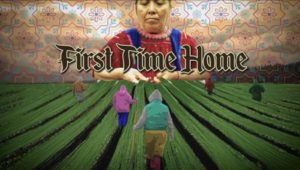
“I ka wā mamua, I ka wā mahope.”
Through the Past is the Future.
Hawaiian proverb
The Smithsonian Institution is hosting the online Mother Tongue Film Festival to celebrate cultural and linguistic diversity. The festival will showcase films and filmmakers from around the world, highlighting the critical role languages play in our daily lives and the importance of maintaining languages that are vanishing.
WHEN: February 17 – March 4, 2022
Learn more about the festival: https://mothertongue.si.edu/
VIEW THE SCHEDULE: https://mothertongue2022.eventive.org/schedule?viewMode=compact
For all peoples, language is the foundation of a culture. For American Indians, Alaska Natives, and Native Hawaiians, it has become culturally imperative to use and save their traditional languages, found nowhere else in the world. Their mother languages are the only means to communicate with elders, the wisdom keepers, to learn about and from their collective pasts. These languages express ideas and values on which their cultures are built, and Native mother tongues capture concepts that don’t exist in English.
In its seventh year, the Mother Tongue Film Festival offers acclaimed feature films, short films, and other forms of digital storytelling, including roundtable discussions with filmmakers, scholars, and Smithsonian staff. The films come from around the world, focusing on different native peoples and different mother tongue languages. Captioning is available.
This unique event is a collaboration between four Smithsonian entities: The National Museum of the American Indian, Asian Pacific American Center, Center for Folklife and Cultural Heritage, and National Museum of Natural History.
To learn more about the Mother Tongue Film Festival, to register for/pre-order for free for specific films or events throughout, and to subscribe to the film festival’s mailing list, visit:
https://www.mothertongue.si.edu
(2022) | Useful to Parent Centers working with Native American families and communities, as well as all those interested in maintaining and honoring mother tongues and languages.

